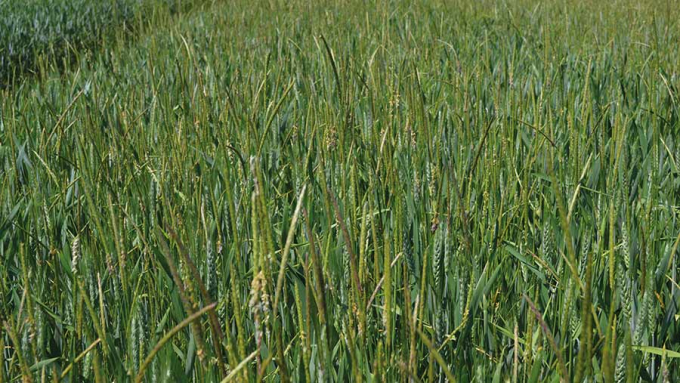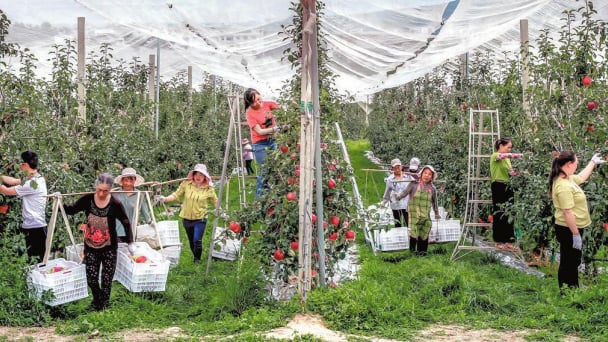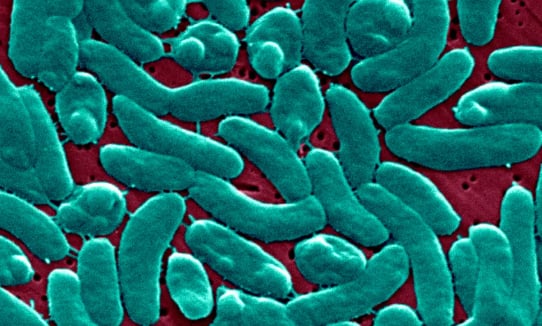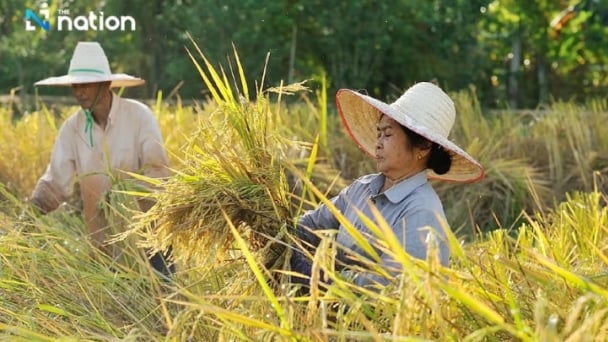September 6, 2025 | 00:34 GMT +7
September 6, 2025 | 00:34 GMT +7
Hotline: 0913.378.918
September 6, 2025 | 00:34 GMT +7
Hotline: 0913.378.918

Blackgrass is one of biggest weed challenges that growers face, especially those with farms where autumn-sown, cereal-based crop rotations have been the norm. Photo: FW
It offers a different mode of action to other actives, which will help prevent weed resistance building up.
Agrochemicals group FMC is hoping its new Isoflex herbicide will be available by autumn 2024 for use in winter cereals if the registration progress goes to plan. It will enter a grassweed control market that has not seen a herbicide featuring a new mode of action for decades.
Gareth Jones, the group’s technical leader in the UK, says the product will be very useful in controlling blackgrass along with other herbicides and cultural methods, and is likely to be available mixed with another of the group’s herbicides.
“Isoflex is hugely relevant to the UK market, as we need new products and strategies to control blackgrass,” he says.
Mode of action
The new active is aimed primarily at blackgrass and ryegrass, and has comparable efficacy with existing products, but with its different mode of action it will be useful when combined with a range of other herbicides.
“The pressure from blackgrass is so severe that no one product will gives us the control we require, so there is a need to use stacks and sequences of herbicides,” he says.
Competitor BASF is hoping to launch its new blackgrass herbicide Luximo (cinmethylin) this autumn.
Mr Jones says Isoflex will be complementary with Luximo in the fight against blackgrass, as current approved chemistry is under pressure from either shifts in sensitivity or potential regulatory restrictions.
Blackgrass is the most economically important weed in the UK and is estimated to cause losses of about £400m annually. Herbicide resistance to the grassweed was first identified in 1982, and now there is widespread resistance to certain herbicide products.
New chemistry with new modes of action working alongside cultural methods, such as delayed drilling and spring cropping, will be essential for effective long-term control of the grassweed, he says.
Level of control
He points out that 98% control of blackgrass is needed to achieve long-term command of the grassweed, as only a small seed return to the soil is required for a big increase in weed infestation the following year. This is why both chemical and cultural control are necessary.
Isoflex has the chemical name bixlozone and comes from the isoxazolidinone family. It shows best control when applied at the pre- and early post-emergence stage of weeds.
It gives control of blackgrass, ryegrass, annual meadowgrass, bromes, rat’s tail fescue and canary grass, as well as broad-leaved weeds such as cleavers, chickweed, speedwell, charlock, poppies and groundsel.
The new active ingredient has residual and contact activity and inhibits weeds from producing carotenoids – pigments critical to the photosynthetic process – and also slows down the production of key amino acids in weeds.
Mr Jones says there is an opportunity to “reset” the use of autumn residual stacks over the next two to three years with current programmes based on flufenacet, pendimethalin, diflufenican, and prosulfocarb. Future programme are likely to be based on Isoflex, cinmethylin, picolinafen and aclonifen.
Wider activity
The new product is set to be mixed with another of the group’s herbicides that has a different mode of action to help give wider grassweed and broad-leaved weed activity.
The herbicide is hoped to be approved in the EU in 2025-26, and is also expected to be used more widely for weed control in oilseed rape, maize and other spring crops.
The US-based FMC expanded into Europe with the 2015 acquisition of Denmark’s Cheminova – which in turn had acquired Headland in the UK. Then, in 2017, it acquired about a half of DuPont’s agrochemicals business, which the European Commission had ordered to be sold off to allow the merger of the DuPont and Dow agrochemical businesses to form Corteva.
As part of that move, the group acquired DuPont’s Nambsheim facility, and the acquisition pushed the group up to sixth in the agrochemicals world league table based on annual sales after Bayer, BASF, Corteva, Syngenta and UPL.
The group, which makes the widely used sulfonylurea herbicides such as Ally and Harmony, says it has a strong pipeline of new products from both its original FMC side and also actives developed initially by DuPont.
(fwi)

(VAN) CO₂ stored underground will be at risk of leaking back into the atmosphere, study finds.

(VAN) The new Syrian government has imposed restrictions on imports of frozen chicken, effective 15 August 2025.

(VAN) The aroma emanating from ducks being spun slowly on charcoal-fired swivel roasters fills the air, drawing people into narrow alleys in search of the source of the familiar, mouthwatering odor.

(VAN) In southwest of New Orleans, Linard Lyons spent the morning on his 19-foot boat, preparing crab traps for his grandchildren just like he had done thousands of times before.

(VAN) Interview with Máximo Torero on key takeaways from SOFI 2025 report.

(VAN) Researchers have discovered that replacing 50g/kg maize with a 50:50 mix of pineapple and orange peels could offer poultry producers a sustainable feed option.

(VAN) Global rice markets are bracing for turbulence after reports that India, the world’s largest rice exporter, is preparing to release around 20 million tonnes of stockpiled rice in September.